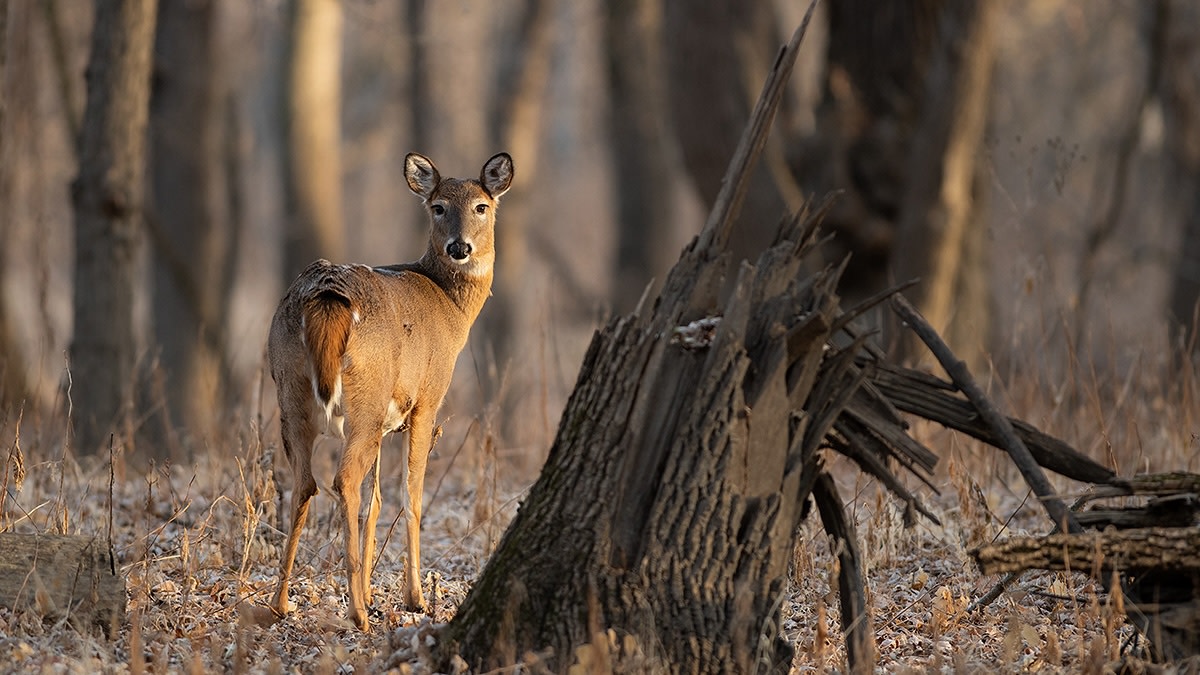Kentucky & Vermont Consider Sweeping Changes to Wildlife Management

Across the country, fish and wildlife management agencies serve as the keepers to our—the public’s—wildlife resources. In conjunction with their (typically) governor-appointed boards, they make decisions that ensure the vitality and future of our resources. But recently, this basic paradigm has come under threat in several states’ current legislative sessions—namely Kentucky and Vermont. Here’s the latest on critical legislation in each.
Kentucky
A controversial piece of legislation, SB3, which would have restructured the Kentucky Department of Fish and Wildlife Resources to be under the Department of Agriculture, appears to be dead in the state’s House (listen to this episode of Cal’s Week in Review for the full background on the bill).
The bill was introduced on the last day for filings in Kentucky, and sportsmen’s groups weren’t consulted ahead of time. It passed the Senate, and for some time, appeared likely to pass the House. But, according to Mike Abell with the Kentucky BHA chapter, the bill was killed in house committee this week.
Paraphrasing the words of Speaker of the House David Osborne (R-Oldham), Abell said, “We have no appetite for it; we’re not going to do it.” Abell also spoke with members of the House committee appointed to the bill, and they echoed the speaker’s language nearly verbatim. With the mutual rejection, the bill appears dead.
From the get-go, conservation and sportsmen groups were nearly unanimously opposed to SB3. In addition to moving the agency to the Department of Agriculture, it would’ve shifted the authority to appoint fish & wildlife commission members from the governor to the agriculture commissioner. The long-term effects of such a stunt would’ve had catastrophic consequences to Kentucky’s wildlife populations.
“Agriculturally minded Fish and Wildlife Commissioners appointed by the Commissioner of Agriculture need only increase bag limits and lengthen seasons over a decade to reduce wildlife populations that took nine decades to recover. This type of action could see our wildlife population decimated and leave us explaining to our grandchildren why there is no game to hunt or fish to catch,” BHA explained in a press release.
Additionally, the commission controls the Fish and Wildlife Resources budget, which is funded nearly entirely by hunting and fishing license sales. Bringing more ag-focused appointees to the board could have allowed money to be redirected toward agricultural interests as opposed to wildlife and conservation.
In a Senate hearing, the Congressional Sportsmen's Foundation’s southeast states coordinator, Conner Barker, took a similar stance as BHA: “[SB3] is not the best solution long-term for managing fish and wildlife resources, public trust resources that are managed largely with sportsmen and women generated dollars.” He added that, “Agricultural priorities may conflict with professional, science-based fish and wildlife management.”
For now, thanks to the collective voice of conservation groups in Kentucky, the state’s wildlife management agency appears safe for the time being. Still, there’s nothing stopping legislators from introducing a similar bill next legislative session. Hunters and anglers must remain vigilant if they want to safeguard our shared wildlife resources for generations to come.
Vermont
A few hundred miles north, Vermont legislators are considering S258, which would demote the Vermont Fish & Wildlife Board to an advisory position to the Vermont Fish & Wildlife Department and its commissioner. Currently, the board is a rule-making body.
The bill would also increase the Board from 14 to 16 members, with a new structure for appointing the two new members (currently, the governor appoints members from each of Vermont’s 14 counties).
The changes are apparently intended to bring non-hunter members onto the Board by allowing the Speaker of the House (Jill Krowinski, D-Chittenden) to appoint one at-large member and the state Committee on Committees the other.
On top of that, when considering potential board members, the appointing bodies must consider the need to “provide balanced viewpoints.” As originally introduced, the same clause mandated the appointment of members who explicitly don’t hunt, fish, or trap, but the Committee on Natural Resources and Energy softened the language.
Hunters and sportsmen’s groups are warning that the bill has the potential to undermine the state’s ability to manage its natural resources. On the senate floor, Senator Russ Ingalls (R-Essex) said the bill is “the biggest anti-hunting bill that’s ever reached the senate, in my opinion. If this bill passes, this is the end of hunting as we know it in the state of Vermont.”
One Vermont resident and hunter, Adam Goudreau, wrote into MeatEater with a more nuanced take on the legislation: “Instead of having a regionally diverse board that independently sets the rules and regs with input from the Fish and Wildlife Department, one person will have all of that authority. I'll let everyone decide for themselves, but it seems like we are throwing out a successful system that has led to abundant wildlife populations.”
The bill passed the Vermont Senate on Tuesday and is heading to the House (track the status here). If you live in Vermont, now is the time to call or write to your representatives—regardless of which way you lean on the bill. After all, it’s our collective wildlife resources that are at stake.
Feature image via Matt Hansen.





